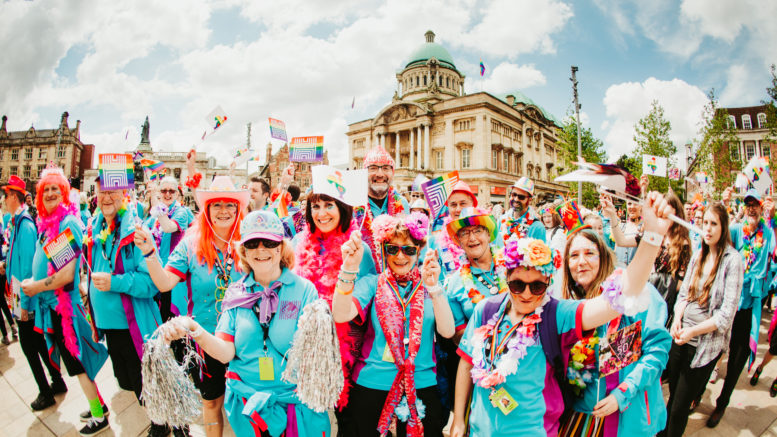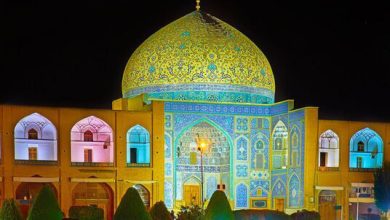Culture of England with General Information
Total Size:
244,820 square km
Capital:
London
Region:
Europe
Low Point:
The Fens -4 m
High Point:
Ben Nevis 1,343 m
Climate:
Temperate; moderated by prevailing southwest winds over the North Atlantic
Major Cities:
London, Birmingham, Manchester, Leeds, Glasgow
Famous Places:
Tower of London, Stonehenge, Westminster Palace, London Eye, Windsor Castle, Cotswolds, St. Paul’s Cathedral,Hyde Park, Loch Ness, Wembley Stadium, Ben Nevis, Globe Theatre, Edinburgh Castle, White Cliffs of Dover, Channel Tunnel, Buckingham Palace, Trafalgar Square, Tower Bridge
Currency:
British pound (GBP)
Type of Government:
Constitutional monarchy
General Overview of England

England has a diverse and unique culture that has been shaped by centuries of history. From the iconic traditions of the monarchy, to the regional variations in language, food, and customs, the culture of England is unique and varied. In this blog, we will explore the various aspects of England’s culture, from its historical context to present-day trends, and discuss how it has been impacted by globalization, technology, immigration, and climate change. We will also discuss the influence of popular culture icons, arts and entertainment, cuisine, religion and beliefs, language, sports, and symbols of England’s culture. Join us in this exploration of England’s culture, and see how it has evolved over the centuries.
Historical Context of England’s Culture
England’s culture has been shaped by a long history of various influences, from the Celts and Romans to the Normans, Anglo-Saxons and more. The culture of England reflects the nation’s varied history and has been profoundly shaped by its relationship with the other countries of the United Kingdom. The English language, literature, music, fashion, cinema and theatre have all played an important role in the formation of the culture of England. Religious and ethnic diversity has been a major force in the development of English culture throughout the years. England’s culture also reflects its long history of colonization and imperialism, as well as the impact of immigration, particularly in the fields of gastronomy, music, and fashion. The country’s rich architectural heritage is also a testament to its history and the influence of a variety of cultures. England’s culture is vibrant and ever-evolving, and serves as an important reminder of the nation’s past and its ties to the wider world.
Regional Variations in culture of England
England is a country with a rich cultural heritage, and that heritage is reflected in the many regional variations found throughout the country. From the rolling hills of the Lake District to the stunning coastline of Cornwall, England’s culture is varied and distinct. Along with the traditional customs, foods and dialects, every region of England has its own unique character and flavor. In the north, the rugged and wild scenery of the Pennines, the ancient cities of Durham and York, and the rolling moors of Yorkshire are all part of the culture. The Midlands is home to the industrial heritage of Birmingham and the beautiful countryside of the Cotswolds. The south boasts the bustling metropolis of London and the quaint towns of the southeast. Every region of England has something unique to offer that contributes to the overall cultural identity of the country.
Arts and Entertainment in England’s Culture
England has a rich cultural history when it comes to arts and entertainment. From the traditional Morris dancing and folk music found in the countryside to the iconic music festivals of Glastonbury, England has something to offer for everyone. The National Theatre and Royal Shakespeare Company are a renowned draw for tourists and locals alike, while the thriving independent theatre scene provides an exciting alternative to the mainstream. England’s musical past includes the likes of The Beatles, Led Zeppelin and The Rolling Stones, while modern acts such as Adele, Ed Sheeran, and Arctic Monkeys have inspired many generations of musicians. England also has a thriving film and television industry, with popular film series such as Harry Potter and James Bond, and iconic TV shows like Doctor Who and EastEnders. England’s diverse culture makes it a great place to experience the arts and entertainment.
Cuisine in England’s Culture
England is a country with a vibrant and varied culture, including many aspects of cuisine. The traditional English diet is largely based around simple dishes such as fish and chips, roast dinners, and hearty stews. This is the cultural legacy of the island nation’s maritime and farming history, but modern England has seen the influence of a variety of other cuisines. These include Indian, Chinese, Italian, French, and many more, which have become popular in England due to their close proximity to the country. As such, England’s culture is an ever-evolving amalgamation of these various cuisines, each one bringing its own unique flair and flavor to the table.
Religion and Beliefs in England’s Culture
England is a culturally diverse nation with a long history of various beliefs and traditions. Religion has been a prominent part of England’s culture for centuries, with the majority of the nation identifying as Christian. Over the years, Christianity has been divided into different denominations, such as the Church of England, Catholic Church, and Protestant faiths. While Christianity remains the predominant faith, other religions, such as Islam, Judaism, and Hinduism, are also practiced throughout the country. Additionally, many people in England have adopted secular beliefs or no religious beliefs at all.
The prevalence of different religious beliefs have had a profound effect on England’s culture, influencing art, literature, education, and politics. The long-standing presence of Christianity has brought with it a range of moral values and social norms that are still observed in the country today. Additionally, the diversity of religious beliefs has led to the development of a multi-cultural society that respects and celebrates the unique beliefs and customs of each group.
Language in England’s Culture
England is renowned for its impressive cultural heritage, and language is an intrinsic part of this culture. England is home to many different dialects and accents, which vary from region to region. As well as being rich in linguistic diversity, England has a long established literary tradition, with some of the most famous and influential writers in the world. From William Shakespeare to Jane Austen, England has produced some of the most influential literature in the world. The English language has also been a major influence on other languages, and has been adopted as an official language in many countries. It is no surprise, then, that language plays an important role in the culture of England.
Sports in England’s Culture
England is renowned for having a thriving culture of sports. From football and rugby to cricket and tennis, the nation has a long history of participation in sports at all levels. The British government has invested heavily in the development of sports clubs and facilities, making England one of the most advanced countries in terms of sports infrastructure. Consequently, England is home to some of the most well-known and successful sports teams in the world. The passion for sports amongst British citizens has been a driving force behind the nation’s success in international competition, with England holding numerous titles in football, cricket, and other sports. In addition to the professional sports teams, there are thousands of amateur clubs and recreational sport activities that offer the opportunity for individuals to get involved in sports in England. England’s culture of sports is an integral part of everyday life, and its citizens are some of the most dedicated sports fans in the world.
Symbols of England’s Culture
England has a rich cultural history and a unique national identity that is strongly associated with symbols of the nation. These symbols represent England’s culture and the values of its people. Symbols of England’s culture include the Union Jack, the royal family, the Tower of London, Big Ben, the London Eye, Stonehenge, the national flower, the oak tree, the national sport, and many more. These symbols have been used over the centuries to represent England and to help celebrate the nation’s heritage. Each of these symbols has its own unique meaning, and they are all a part of England’s rich cultural history.
Political Institutions in England’s Culture
In England, the importance of political institutions in its culture cannot be understated. England’s long-standing history of democracy and constitutional monarchy has made it a model for the rest of the world. A representative government, with the power of the monarchy and the House of Commons, has produced a culture that values the rule of law, the rights of citizens, and the importance of civil liberties. With the Magna Carta, the English Bill of Rights, and other documents, the citizens of England have a well-defined system that allows for the peaceful transition of power, as well as the protection of basic rights. This system has helped to shape the culture of England for centuries, and continues to influence its people today.
Customs and Traditions in England’s Culture
England has many rich and varied customs and traditions that make up its culture. These customs and traditions are passed down from generation to generation, contributing to the cultural identity of the nation. Examples of English customs and traditions include afternoon tea, fish and chips, wearing a bowler hat, queuing, and Morris dancing. Afternoon tea is a British tradition which dates back to the 1840s and typically includes a selection of sandwiches, scones, cakes, and tea. Fish and chips is a famous British dish, created in the 19th century and most commonly eaten with vinegar and salt. Wearing a bowler hat is a tradition associated with bankers, businessmen, and the upper classes. Queuing is an important part of English culture and shows the British concept of fairness. Finally, Morris dancing is a traditional form of folk dancing which is still popular in England today. These customs and traditions are an integral part of English culture and help to define its unique identity.
History of England’s Culture
The culture of England has evolved over centuries and has been shaped by both the British Isles’ unique environment and its position as an integral part of the United Kingdom. England has developed a distinct culture that is reflected in its literature, arts, music, customs, traditions, and even its distinctive accent. England’s culture has been shaped by a number of influences, such as the Norman Conquest, the Celts, Christianity, and the Celtic Revival. This rich cultural history has produced a plethora of great works such as William Shakespeare’s plays, the music of the Beatles, and the unique regional architecture of the nation. England’s culture is also expressed through its many festivals and celebrations, such as the traditional Easter bonnet parade. England’s culture is also expressed through its culinary traditions, ranging from the traditional fish and chips to modern gourmet restaurants. England’s culture is also visible through its sporting culture, with cricket being the national sport and many other sports such as football and rugby being popular among the English people. Overall, England’s culture is a vibrant mix of old and new traditions, making it a nation with a distinct and fascinating culture.
Popular Cultural Icons of England
England has a rich cultural history, and many of its most influential icons have become beloved around the world. From the Beatles to the monarchy, there are a number of iconic figures that have become synonymous with English culture. The Beatles revolutionized the music industry, influencing generations of musicians and fans alike. The British monarchy has a long and storied past, with its members providing a source of fascination and admiration for many. Other iconic figures include Winston Churchill, William Shakespeare, and David Beckham, who are all seen as symbols of England’s culture and values. England has a unique and vibrant culture, and its cultural icons are a representation of its history and values.
Influence of England’s Culture on the World
England has had a significant impact on the world’s culture, from the spread of the English language to the diffusion of art, literature, and music. The English language is the most widely spoken language in the world and is used for communication across countries, cultures, and generations. English has become the language of international business and tourism, and the language of choice for many people learning a foreign language.
English literature has been a major influence throughout the world, with many authors, such as William Shakespeare, Charles Dickens, and J.K. Rowling, becoming household names. English art, such as the Pre-Raphaelite school, has also been influential in the global art world, inspiring artists around the world. British music, from the Beatles to Radiohead, has been embraced by fans around the world and has been a major influence in the development of popular music.
The influence of England’s culture on the world is undeniable. From the English language to literature, art, and music, England has made an indelible mark on the culture of the world.
Influence of Globalization on England’s Culture
Globalization has had a significant impact on England’s culture. As the world becomes increasingly interconnected and the spread of information, goods, services, and people continues to accelerate, England has had to adapt to the changing culture. As a result, the English culture has become more cosmopolitan and diverse. This has been seen in the increasing variety of cuisines and languages spoken.
The influence of globalization on England’s culture has also been seen in its music and film. With the introduction of digital music, as well as streaming services such as Netflix and Amazon Prime, there has been a greater variety of music and films from across the world being consumed in England. This has led to a wider range of cultural influences and perspectives being shared and appreciated.
Additionally, the economy of England has been heavily influenced by the global economy. As the country has become more connected to other countries, the economy has become more open and competitive. This has resulted in the growth of multinational corporations, foreign investment, and increased trade. All of these factors have had an impact on England’s culture, as it has become more diverse and open to different influences.
Overall, globalization has had a tremendous impact on England’s culture. The country has become more cosmopolitan and open to different influences, resulting in a more diverse culture. This has been seen in the variety of cuisines and languages spoken, as well as the music and films being consumed. Additionally, globalization has impacted the economy, leading to increased foreign investment and trade.
Impact of Technology on England’s Culture
The impact of technology on England’s culture has been profound. Technological advancements have changed the way people interact, work, and live, and these changes have been felt in England’s culture. For example, the use of the internet has enabled people to connect with others from different parts of the world, which allows for a greater exchange of ideas and perspectives. Additionally, technology has provided new opportunities for businesses, as well as opened up avenues for innovative new products and services. This has allowed for a greater diversity of culture to come to the forefront in England and has allowed for a greater range of opinions and conversations. Furthermore, technology has allowed for more efficient transportation and communication, which has enabled people to travel more easily and to stay connected in different ways. In short, technology has served to shape and reshape England’s culture in a variety of ways, making it a more diverse and open-minded place.
Gender Roles in England’s Culture
Gender roles have played a significant role in the history and culture of England. From the Middle Ages, when the roles of men and women were more clearly defined and expectations of behavior were more rigid, through to the Industrial Revolution and the modern day, gender roles in England have been shaped by the country’s economic and social context. In the past, women were mainly expected to perform domestic tasks such as cooking, cleaning, and raising children, while men were responsible for providing for the family and engaging in work outside the home. However, since the 1950s, there have been great strides in equality between genders and women have increasingly been able to pursue professional careers and educational opportunities. Today, the traditional gender roles have become less pronounced, and there is more acceptance of a variety of roles and expectations of both men and women.
Education in England’s Culture
Education has been a part of the culture of England for centuries. The quality of education that is provided in England is widely renowned, with many universities in the country being recognized as some of the best in the world. Education in England is considered a public good, with the government providing free, universal primary and secondary education to all citizens. Education plays an essential role in the life of English citizens, with educational qualifications being a common requirement for many professions. The curriculum in England is broad and diverse, allowing students to explore their interests and develop skills needed to thrive in their future careers. Education in England is highly valued, and learning is seen as a lifelong process.
Impact of Immigration on England’s Culture
Immigration has had a significant impact on the culture of England. Over the past few centuries, England has seen an influx of immigrants from around the world and this has added to the diversity of the nation’s culture. Immigrants have brought new ideas, customs and traditions which have enriched the culture and made it more vibrant. Immigrants have also introduced new foods, languages and styles of dress, all of which have become part of England’s culture. The impact of immigration has also been felt in the arts, with a number of immigrants making a significant contribution to England’s literary, musical and visual arts. Through the influence of immigrants, England’s culture has become more diverse and dynamic, making it a more interesting place to live and visit.
Impact of Social Media on England’s Culture
The impact of social media on the culture of England has been tremendous in recent years. It has allowed people to connect more easily and share their culture with a wider audience. Social media platforms such as Facebook, Twitter and Instagram have provided people with a platform to express themselves, contributing to a more diverse and connected culture. Furthermore, digital media has enabled the sharing of cultural experiences, such as festivals and events, with a much larger audience than traditional methods. This has led to increased participation in cultural activities and created a more vibrant and inclusive culture. Social media has also allowed individuals to engage with topics that have traditionally been seen as taboo in England, such as politics or religion, creating a more open and tolerant culture. In conclusion, the impact of social media on England’s culture has been overwhelmingly positive, creating a more connected and diverse society.
Influence of the Media on England’s Culture
The media has long been a major influence on England’s culture and society. From newspapers and magazines to television and radio, the media has played an important role in shaping the cultural norms of England. It has helped to shape attitudes and opinions on a wide range of topics, from politics to fashion and entertainment. The media has also been instrumental in creating a sense of national identity, with certain stories and images used to unite the nation. In recent years, the media has also been used to spread awareness of different cultures, helping to create a more diverse and tolerant England. The media has undoubtedly been one of the major factors in influencing England’s culture, and it continues to do so today.
Impact of Climate Change on England’s Culture
Climate change is having a significant impact on the culture of England. Rising temperatures and increasing frequency of extreme weather events are disrupting traditional lifestyles, prompting people to adapt their cultural practices. Changes in crop growth and availability of natural resources are also affecting traditional practices such as hunting, gathering, and fishing. The long-term effects of climate change will likely cause a decrease in the diversity of cultural practices that have been observed in England for centuries. Additionally, the increasing intensity of extreme weather events is increasing the risk of damage to important cultural sites, such as Stonehenge. The English government is working to protect its cultural heritage by encouraging sustainable practices and investing resources into resilience and adaptation projects. However, more needs to be done to ensure the preservation of England’s unique culture in the face of climate change.
Influence of Royalty on England’s Culture
The culture of England has been greatly shaped by its relationship with the monarchy. For centuries, the English monarchy has been at the center of both political and cultural life in England, influencing the arts, literature, and even the language itself. The monarchy has also been a source of great inspiration for writers and artists, often providing the backdrop for works of fiction and poetry. Royalty has also had a hand in the development of English customs and traditions. From the grandeur of the coronation ceremony and the pomp and circumstance of royal weddings, to the annual Trooping of the Colour and the traditional Changing of the Guard, the monarchy has left its mark on England’s culture.
Social Stratification in England’s Culture
England has a long history of social stratification in its culture. Throughout the centuries, there have been various social classes, each with its own unique set of values and beliefs. These social classes have been based largely on wealth and connections, with the upper classes having the most power and influence. This system of stratification has been a part of English culture for centuries, though it has evolved over time to become more egalitarian. Today, social stratification still plays a role in determining the opportunities and lifestyle of individuals in England, though the extent of this has diminished in recent years. Nonetheless, it is important to consider the implications of this stratification when discussing England’s culture and history.
Tourism and Travelling in England’s Culture
England is a country full of culture and history, and traveling and tourism are an important part of its culture. From its stunning countryside to its bustling cities, England has something to offer for every traveler. From the ancient monuments and castles that line the countryside to the vibrant atmosphere of the cities, England provides a unique experience for any traveler. Tourists can visit iconic landmarks such as the Tower of London and Stonehenge, explore the vibrant nightlife of London and the stunning beauty of the Cotswolds, or take in a show in the West End. Whether you’re looking for a quiet countryside break or an exciting city adventure, England has something for everyone. With its world-class attractions, friendly locals, and rich history, England is an ideal destination for any traveler.
Modern Trends in England’s Culture.
England is a nation with a rich, vibrant culture that continues to evolve and adapt to changing times. While traditional customs and values are still embraced and celebrated, modern trends and styles have shaped the culture in recent decades.
In terms of fashion, England is home to some of the most iconic and forward-thinking designers in the world, from Vivienne Westwood to Alexander McQueen. British fashion collections are known for their bold, creative designs that have spurred trends around the world. Music, too, is a huge part of England’s culture. From the Beatles to Adele and Ed Sheeran, British artists have dominated the international music scene.
In terms of food, England has embraced a variety of different cuisines from around the world. Traditional English food still has a place but it has been complemented by new flavors from South Asia, the Middle East and beyond. Similarly, while traditional pubs remain a staple of the country’s landscape, modern gastropubs and craft beer bars have become popular.
Overall, England’s culture has embraced modern trends while still honoring its traditional roots. It is a nation that embraces innovation and creativity, which has helped to shape its culture in exciting and unexpected ways.
Modern Cultural Influences on England’s Culture
The culture of England is heavily influenced by modern cultural movements, such as the rise of popular music, television shows and films, fashion trends, and the increasing multi-culturalism of the British population. In the past decades, there has been a noticeable shift in the traditional English culture, with modern influences permeating the fabric of everyday life. Music, literature, and the visual arts have been significantly influenced by the globalisation of culture and the internet, while the world of fashion has seen a huge transformation due to the accessibility of luxury and designer labels. The increasing diversity of the population has brought with it a wealth of different cultural influences, from the cuisines of South Asia to the music of Africa. England’s culture has become increasingly cosmopolitan, diverse, and dynamic, adapting to the changing world around it.
Economic Factors Impacting England’s Culture
England has a rich cultural history that has been greatly impacted by economic factors. For centuries, England’s economy has been largely determined by its access to resources, its trading relationships, and its access to foreign markets. This has had a significant effect on the development of England’s culture, particularly in terms of its music, art, literature, and fashion.
England’s music, for example, has often been shaped by its economic situation. During the Industrial Revolution, for example, the development of folk music was heavily influenced by the rise of industry and the need for workers to have music that reflected their experiences. Similarly, the rise of punk rock in the 1970s was a direct response to the economic recession of the time.
The economy has also had an effect on England’s fashion. During more prosperous times, such as during the Georgian and Victorian eras, fashion was highly ornate, often featuring luxurious fabrics and intricate designs. Conversely, during times of economic hardship, fashion has been much simpler and more practical.
Overall, England’s culture has been greatly influenced by its economic situation. Through its music, art, literature, and fashion, England’s culture has played an integral role in its economic development, and vice versa.
Role of Music in England’s Culture
England has a long and rich history of music, and music has played an important role in the culture of the country. From the traditional folk songs that have been passed down through generations to the more modern forms of pop, rock and dance music, music has been a key part of English life. Many English composers and musicians, including the likes of Elgar, Vaughan Williams and Benjamin Britten, have become renowned across the world.
Live music continues to be an important part of England’s culture, with many venues and festivals dedicated to showcasing the best of the country’s musical talent. Music also plays a role in traditional celebrations, with caroling and choirs singing in churches at Christmas, and brass bands playing in summer street festivals. Music has also played a role in the nation’s political life, with protest songs and anthems used to rally people in support of causes.
Overall, music has been integral to England’s cultural identity and continues to be a part of its diverse and vibrant culture.
Conclusion
England’s culture is a tapestry of influences, with each region exhibiting its own unique and distinctive characteristics. From the iconic symbols of royalty to the history and customs of England, the culture is ever-evolving, and its influences can be seen not only in the United Kingdom, but throughout the world. Technology, globalization, immigration, and social media are just some of the many factors that have had a significant impact on England’s culture. As the country continues to move forward and develop, it is likely that its culture will also continue to change and evolve, creating a new and exciting landscape of customs, beliefs, and entertainment.





